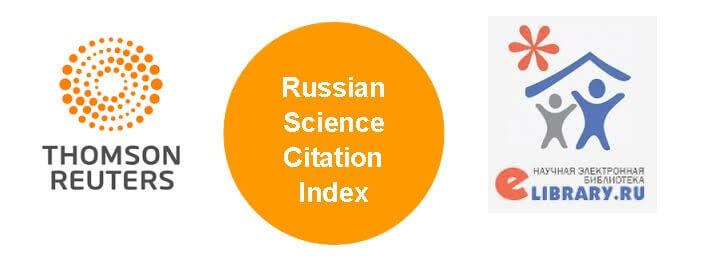A refined phase diagram of the GeTe-Bi2Te3 system
Abstract
Updated phase diagram of the GeTe–Bi2Te3 system was constructed using differential thermal, X-ray diffraction analysis and scanning electron microscopy (SEM) results of alloys synthesized with specially developed technology. The refined version significantly differs from those reported so far. The presented phase diagram reflects six ternary compounds: Ge4Bi2Te7, Ge3Bi2Te6, Ge2Bi2Te5, GeBi2Te4, GeBi4Te7, and GeBi6Te10.
The study determined that the first two compounds are formed as a result of solid-state reactions at temperatures of 750–800 K, and the latter four are formed as a result of peritectic reactions at 863, 854, 848, and 843 K, respectively. Wide homogeneity regions based on the initial binary compounds were also found. These regions reach 10 mol% at room temperature. The coordinates of eutectic point are 83 mol% Bi2Te3 and 838 K. It crystallises at 838 К. It was found that all the identified ternary compounds crystallise in a tetradymite-like layered structure. Ge4Bi2Te7, Ge3Bi2Te6, Ge2Bi2Te5, and GeBi2Te4 compounds belong to the nGeTe·Bi2Te3 homologous series. Their crystal lattices are formed by the insertion of GeTe bilayers into the quintuple Bi2Te3 layers. GeBi4Te7 and GeBi6Te10 compounds are representatives of the GeTe·mBi2Te3
homologous series and have a mixed-layer structure. The parameters of the crystal lattices of the compounds were determined by the Rietveld method based on their powder diffraction data.
Downloads
References
Liu X., Lee S., Furdyna J. K., Luo T., Zhang Y. H. Chalcogenide: From 3D to 2D and Beyond. Elsevier; 2019. 398 p.
Scheer R. , Schock H-W. , Chalcogenide Photovoltaics: Physics, Technologies, and Thin Film Devices. Wiley-VCH; 2011. 384 p.
Ahluwalia G. K. Applications of Chalcogenides: S, Se, and Te. Springer; 2016. 461 p. 4. Shevelkov A. V. Chemical aspects of the design of thermoelectric materials. Russian Chemical Reviews. 2008;77(1): 1–19. https://doi.org/10.1070/RC2008v077n01ABEH003746
Kohri H., Shiota I., Kato M., Ohsugi I. J., Goto T. Synthesis and thermoelectric properties of Bi2Te3–GeTe pseudo-binary system. Advances in Science andTechnology. 2006;46: 168–173. https://doi.org/10.4028/www.scientific.net/AST.46.168
Rosenthal T., Schneider M. N., Stiewe C.,Döblinger M., Oeckler O. Real structure and thermoelectric properties of GeTe-Rich germanium antimony tellurides. Chemistry of Materials. 2011;23(19): 4349–4356. https://doi.org/10.1021/cm201717z
Wu D., Xie L., Xu X., He J. High thermoelectric performance achieved in GeTe–Bi2Te3 pseudo-binary via Van der Waals gap-induced hierarchical ferroelectric domain structure. Advansed Functional Materials. 2019;29(18): 1806613. https://doi.org/10.1002/adfm.201806613
Cao Y., Li, Z., Wu J., Huang X., Zhang S. Electrical properties of GeTe-based ternary alloys. Journal of Wuhan University of Technology-Mater. Sci. Ed. 2018;33(2):472–475. https://doi.org/10.1007/s11595-018-1847-2
Moore J. E. The birth of topological insulators. Nature. 2010;464: 194–198. https://doi.org/10.1038/nature08916
Kane C. L., Moore J. E. Topological insulators. Physics World. 2011;24(02): 32−36.
https://doi.org/10.1088/2058-7058/24/02/36
Eremeev S. V., Landolt G., Aliyev Z. S., Babanly M. B., Amiraslanov I. R. Atom-specific spin mapping and buried topological states in a homologous series of topological insulators. Nature Communications. 2012;3: 635. https://doi.org/10.1038/ncomms1638
Cava R. J., Ji H., Fuccillo M. K., Gibson Q. D., Horb Y. S. Crystal structure and chemistry of topological insulators, Journal of Materials Chemistry C. 2013;1: 3176–3189. https://doi.org/10.1039/C3TC30186A
Papagno M., Eremeev S., Fujii J., Aliev Z.S. Multiple coexisting dirac surface states in threedimensional topological insulator PbBi6Te10. ACS Nano. 2016;10(3): 3518–3524. https://doi.org/10.1021/acsnano.5b07750
Pacile D., Eremeev S. V., Caputo M., Pisarra M., De Luca O., Grimaldi I., Fujii J., Aliev Z. S., Babanly M. B., Vobornik I., Agostino R. G., Goldoni A., Chulkov E. V., Papagno M. Deep insight into the electronic structure of ternary topological insulators: A comparative study of PbBi4Te7 and PbBi6Te10. Physica Status Solidi Rapid Research Letters. 2018;12(12): 1800341-8. https://doi.org/10.1002/pssr.201800341
Babanly M. B., Chulkov E. V., Aliev Z. S., Shevelkov A. V., Amiraslanov I. R. Phase diagrams in materials science of topological insulators based on metal chalcogenides. Russian Journal of Inorganic Chemistry. 2017;62(13): 1703–1729. https://doi.org/10.1134/S0036023617130034
Nurmamat M. , Okamoto K. , Zhu S. , Menshchikova T. V., Rusinov I. P., Korostelev V. O., Miyamoto K., Okuda T., Miyashita T., Wang X., Ishida Y., Sumida K., Schwier E. F., Ye M., Aliev Z. S., Babanly M. B, Amiraslanov I. R., Chulkov E. V., Kokh K. A., Tereshchenko O., Shimada K., Shin S., Kimura A. Topologically non-trivial phase-change
compound GeSb2Te4. ACS Nano. 2020; 14(7): 9059–9065. https://doi.org/10.1021/acsnano.0c04145
Okamoto K., Kuroda K., Aliyev Z. S., Babanly M. B., Amiraslanov I. R. Observation of a highly spin-polarized topological surface state in GeBi2Te4. Physical Review B. 2012;86(19): 195304–195308. https://doi.org/10.1103/PhysRevB.86.195304
Sterzi A., Manzoni G., Crepaldi A., Cilento F., Zacchigna M., Leclerc M., Parmigiani F. Probing band parity inversion in the topological insulator GeBi2Te4 by linear dichroism in ARPES. Journal of Electron Spectroscopy and Related Phenomena. 2018;225: 23–27. https://doi.org/10.1016/j.elspec.2018.03.004
Peng R., Ma Y., Wang H., Huang B., Dai Y. Stacking-dependent topological phase in bilayer MBi2Te4 (M = Ge, Sn, Pb). Physical Review B. 2020;101(11):115427. https://doi.org/10.1103/PhysRevB.101.115427
Siegrist T., Merkelbach P., Wuttig M. Phase change materials: challenges on the path to a universal storage device. Annual Review of Condensed Matter Physics. 2012;3: 215–237.
https://doi.org/10.1146/annurev-conmatphys-020911-125105
Tominaga J. Topological memory using phasechange materials. MRS Bulletin. 2018;43(05): 347–351. https://doi.org/10.1557/mrs.2018.94
Jones R. O. Phase change memory materials: Rationalizing the dominance of Ge/Sb/Te alloys. Physical Review B. 2020;101(2): 024103. https://doi.org/10.1103/physrevb.101.024103
Liu, Y., Li, X., Zheng, H., Chen, N., Wang, X., Zhang, X., … Zhang, S. High-Throughput screening for phase-change memory materials. Advansed Functional Materials. 2021;31(21): 2009803. https://doi.org/10.1002/adfm.202009803
Babanly M. B., Mashadiyeva L. F., Babanly D. M., Imamaliyeva S. Z., Taghiyev D. B., Yusibov Y. A. Some issues of complex investigation of the phase equilibria and thermodynamic properties of the ternary chalcogenide systems by the EMF method. Russian Journal of Inorganic Chemistry. 2019;13: 1649–1671. https://doi.org/10.1134/S0036023619130035
Shelimova L. E., Karpinskii O. G., Zemskov V. S. Structural and electrical properties of layered tetradymite-like compounds in the GeTe-Bi2Te3 and GeTe-Sb2Te3 systems. Inorganic Materials. 2000;36(3): 235–242. https://doi.org/10.1007/BF02757928
Shelimova L. E., Karpinskii O. G., Kosyakov V. I. Homologous series of layered tetradymite-like compounds in Bi-Te and GeTe-Bi2Te3 systems. Journal of Structural Chemistry. 2000;41(1): 81–87. https://doi.org/10.1007/BF02684732
Shelimova L. E., Karpinskii O. G., Konstantinov P. P. Crystal structures and thermoelectric properties of layered compounds in the ATe-Bi2Te3 (A = Ge, Sn, Pb) systems. Inorganic Materials. 2004;40(5): 451–460. https://doi.org/10.1023/B:INMA.0000027590.43038.a8
Jung C. S., Kim S. H., Im H. S., Park K., Park J., Ahn J-P., Yoo S. J., Kim J-G., Kim J. N., Shim J. H. In situ emperature-dependent transmission electron microscopy studies of pseudobinary mGeTe·Bi2Te3 (m = 3–8) nanowires and first-principles calculations. Nano Letters. 2015;15(6): 3923–3930. https://doi.org/10.1021/acs.nanolett.5b00755
Rohr F. V., Schilling A., Cava R. J. Single-crystal growth and thermoelectric properties of Ge(Bi,Sb)4Te7.Journal of Physics: Condensed Matter. 2013;25(7): 075804. https://doi.org/10.1088/0953-8984/25/7/075804
Urban P., Simonov A., Weber T., O. Oeckler. Real structure of Ge4Bi2Te7: refinement on diffuse scattering data with the 3D-ΔPDF method. Journal of Applied Crystallography. 2015;48: 200–211. https://doi.org/10.1107/S1600576714027824
Eremeev S. V., Rusinov I. P., Echenique P. M., Chulkov E. V. Temperature-driven topological quantum phase transitions in a phase-change material Ge2Sb2Te5. Scientific Reports. 2016;6: 38799. https://doi.org/10.1038/srep38799
Abrikosov N. X, Danilova-Dobryakova G. T. Study of the GeTe-Bi2Te3 phase diagram. Izvestiya Akademii Nauk SSSR, Neorganicheskie Materialy. 1965;1: 57–61. (In Russ.)
Alakbarova T. M., Meyer H-J., Orujlu E. N., Amiraslanov I. R., Babanly M. B. Phase equilibria of the GeTe−Bi2Te3 quasi-binary system in the range 0–50 mol% Bi2Te3. Phase Transitions. 2021;94(5): 366–375. https://doi.org/10.1080/01411594.2021.1937625
Abrikosov N. K., Bankina V. F., Poretskaya L. V., Shelimova, L. E., Skudnova, E. V. Semiconducting II–VI, IV–VI, and V–VI Compounds. Springer US; 1969. 252 p.
Abrikosov, N. K., Bankina, V. F. Study of phase diagram of the system Bi–Te. Journal of Inorganic Chemistry USSR. 1958: 659–667. (In Russ.)
Hasanova G. S., Aghazade A. I., Imamaliyeva S. Z., Yusibov Y. A., Babanly M. B. Refinement of the phase iagram of the Bi-Te system and the thermodynamic properties of lower bismuth tellurides. JOM. 2021;73(5): 1511–1521. https://doi.org/10.1007/s11837-021-04621-1
Hasanova G. S., Aghazade A. I., Babanly D. M., Imamaliyeva S. Z, Yusibov Y. A., Babanly M. B. Experimental study of the phase relations and thermodynamic properties of Bi–Se system. Journal of Thermal Analysis and Calorimetry. 2021. https://doi.org/10.1007/s10973-021-10975-0
Gasanova G. S., Agazade A. I., Babanly D. M., Tagiev D. B, Yusibov Yu. A. , Babanly M. B. Thermodynamic properties of bismuth selenides. Russian Journal of Physical Chemistry A. 2021;95(5): 920–925. https://doi.org/10.1134/S0036024421050137
Hasanova G. S., Aghazade A. I., Yusibov Y. A., Babanly M. B. Thermodynamic properties of the BiTe and Bi8Te9. Physics and Chemistry of Solid State. 2020;21(4): 714–719. https://doi.org/10.15330/pcss.21.4.714-719
Copyright (c) 2022 Kondensirovannye sredy i mezhfaznye granitsy = Condensed Matter and Interphases

This work is licensed under a Creative Commons Attribution 4.0 International License.













